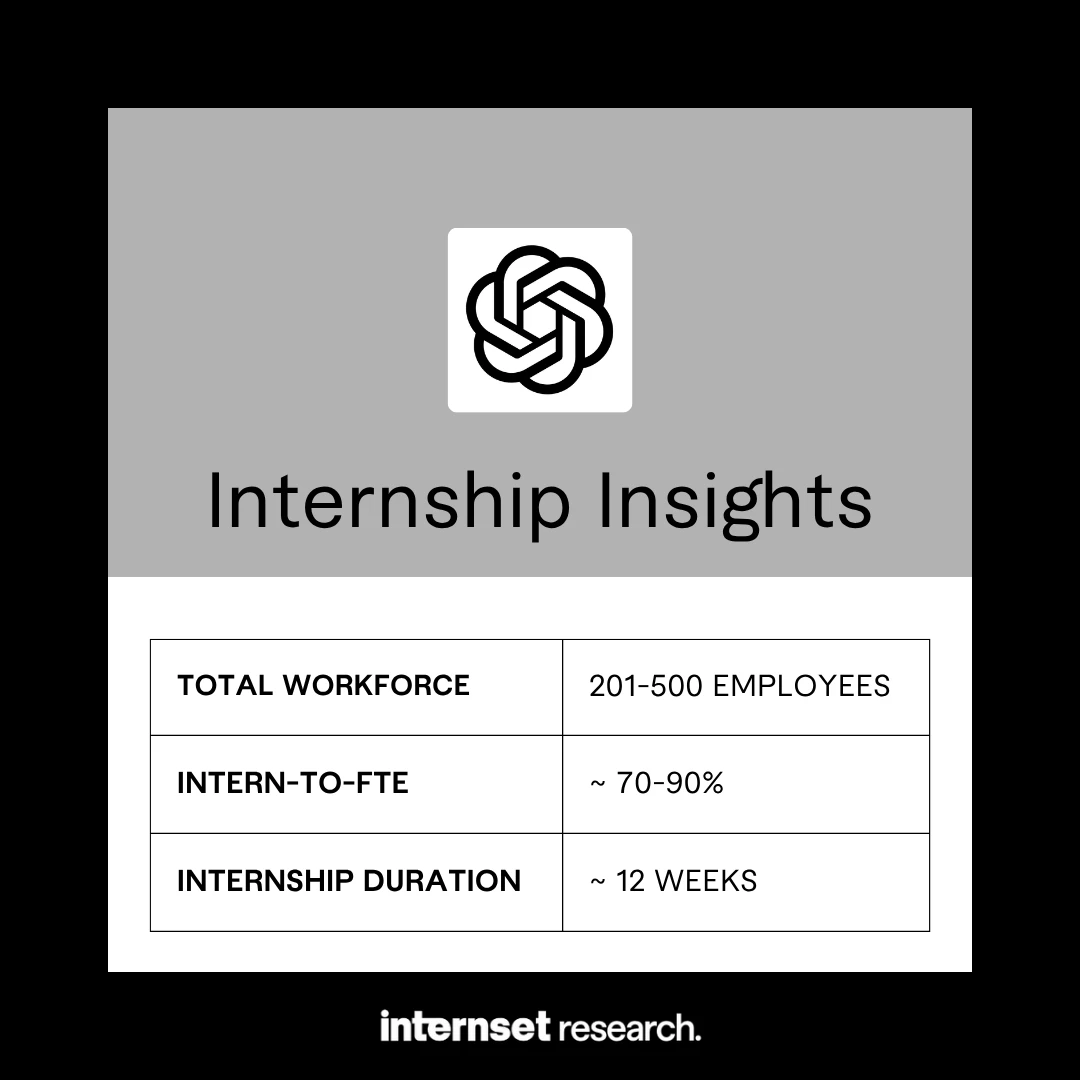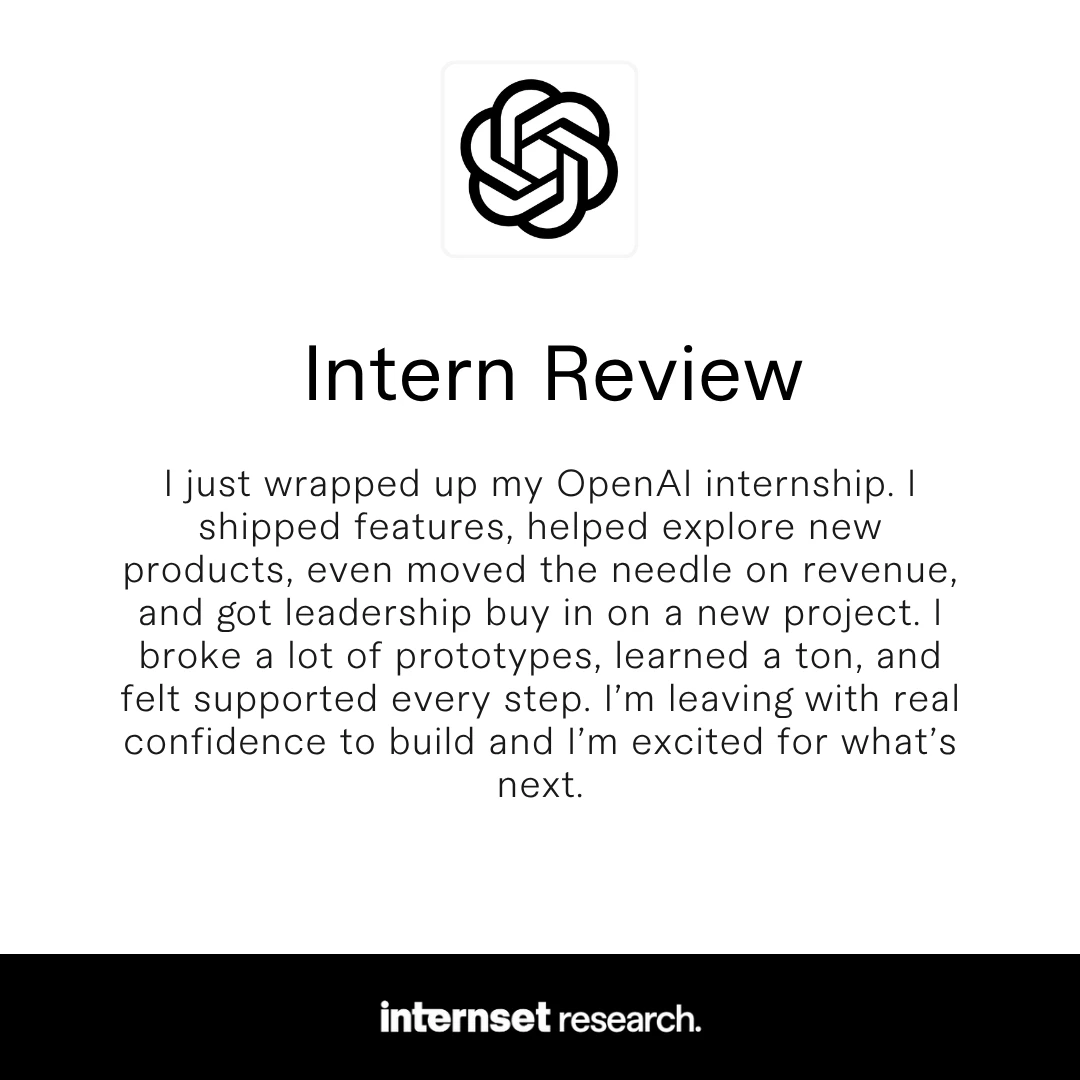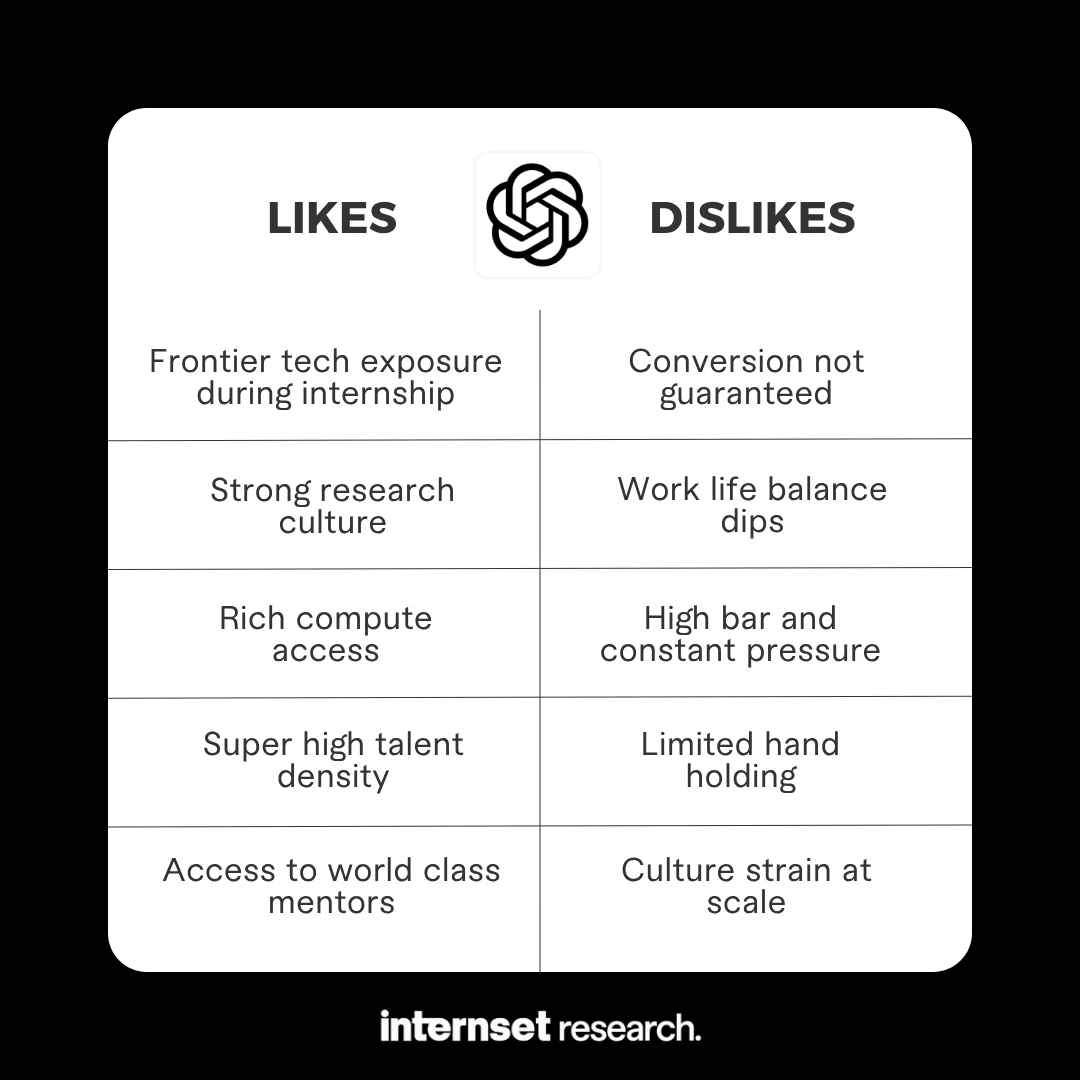


1 Popular internship programs at OpenAI
1.1 Research Internship
The Research Internship gives students access to cutting edge research workflows and tools used to study large scale models. Interns learn how advanced architectures behave, how to design experiments that test learning patterns, and how to evaluate model performance across scientific benchmarks. The program offers guided exposure to research planning, model evaluation pipelines, and emerging approaches in reasoning, alignment, and multimodal systems. Interns receive mentorship from senior researchers who help them build strong intuition for experimentation, reproducibility, and scientific reasoning in AI.
1.2 Applied AI Internship
The Applied AI Internship is designed for learners who want to explore real world applications of large language models and multimodal systems. The program offers training in fine tuning workflows, evaluation strategies, prototype building, and user aligned AI development. Interns learn how to convert research insights into useful features, how to shape AI behavior for real users, and how to measure performance in practical contexts. Mentors guide interns through feedback loops, experimentation tools, and product aligned model testing so that they understand the practical side of advanced AI deployment.
1.3 Safety and Alignment Internship
1.4 Engineering Internship
1.5 Product and Design Internship
This program emphasizes clarity in interface thinking, sensitivity to user trust, and a high standard for usability in intelligent systems. Interns receive mentorship from product leaders and design experts while learning how to turn technical capability into seamless user experience. They also participate in concept reviews and early feature exploration sessions.
1.6 Policy and Responsible AI Fellowship
This fellowship gives students a deep understanding of global AI policy, ethical governance, and responsible deployment frameworks. Interns learn how governments, research institutions, and technology companies shape standards for advanced AI. The program covers analysis of policy proposals, study of global regulatory trends, and exposure to responsible innovation principles. Interns receive mentorship from policy experts and ethics researchers who guide them through real world discussions on transparency, accountability, and human centered AI strategy.
2 Popular roles for interns at OpenAI
1. Research Intern: Runs experiments, analyzes model behavior, studies learning patterns, builds research utilities, and contributes to scientific exploration and evaluation workflows.
2. Applied Scientist Intern: Fine tunes models, builds evaluation tools, tests model prompts, explores inference techniques, and supports applied model improvements.
3. Safety Research Intern: Investigates failure cases, builds testing frameworks, analyzes harmful behavior patterns, and supports safety analysis and alignment studies.
4. Machine Learning Engineering Intern: Builds training pipelines, prepares datasets, supports large scale experiment execution, optimizes compute workflows, and manages model artifacts.
5. Software Engineering Intern: Develops backend systems, improves reliability tools, enhances training platforms, and contributes to codebases that support model deployment and internal operations.
6. Policy Research Intern: Analyzes global AI policy trends, prepares research notes, studies regulatory frameworks, and supports responsible AI and governance recommendations.
7. Technical Product Intern: Works on prototype experiments, evaluates user needs, tests interface ideas, and supports early product concept development.
8. Design Intern: Builds prototypes, designs interaction flows, creates visual concepts, and refines UX for AI driven experiences.
9. Data Quality Intern: Labels complex data, identifies edge cases, validates datasets, reviews model outputs, and supports quality checks for evaluation pipelines.
10. Research Communications Intern: Documents experiments, drafts technical explanations, organizes research notes, and prepares clarity material for internal communication and research understanding.
11. Trust and Safety Analyst Intern: Reviews usage patterns, tests safety systems, categorizes edge cases, and supports improvements to user safety and platform trust mechanisms.
12. Developer Relations Intern: Builds example applications, reviews developer workflows, tests developer tools, and creates learning resources for model builders and API users.
Related articles:
1. How OpenAI is quietly celebrating the builders behind the machines
2. What projects do OpenAI MTS interns work on?
3. What do Omni and Retail Technology interns do at Lululemon?